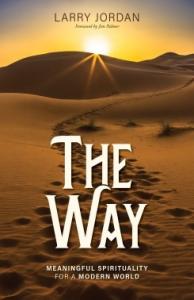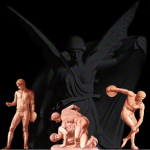The benefits of exploring other traditions are numerous. So, it is helpful to understand both the similarities and the differences in religious beliefs and practices.
In The Way, I describe what Aldous Huxley and others called the perennial philosophy. Huxley believed that the perennial philosophy underlies all religions. It assumes that there is a godhead or ground behind the Universe, that this unity is immanent and transcendent, and that we can commune or merge with the godhead or ground of being by transcending our egoic selves.
As Henri Nouwen, a Catholic priest, wrote: “Slowly, I came to realize that the differences between Catholic and Protestant, Christian and Buddhist, religious and secular, were not the kind of differences I thought they were; that there was a deeper unity below the surface.… To move from exclusive notions of Christian community to a more universal and inclusive vision of the human family of God is a difficult journey and requires a mature and confident faith.”
Religion plays an important role in history. Also, religion tells us how our ancestors viewed some of life’s biggest questions. Thus, the study of religion can be relevant and timely even for those, like me, who are spiritual but not religious. But, it can be helpful for those who are not spiritual at all, too.

Similarities in Religious Beliefs and Practices
“Do unto others as you would have them do unto you.” The Golden Rule of is common to almost all traditions. Beyond that, there are books of “parallel sayings” that demonstrate the similarities between Jesus’ teachings and those of Buddha, Lao Tzu, and others. Jesus’ way is somewhat similar to Buddha’s way, to Krishna’s way, to Lao Tzu’s way, and to Muhammed’s way.
The major traditions share common mythology, too. So, if we examine ancient religions, we might say, “Aha, the myth of the creation… aha, the myth of the fall… aha, the myth of the flood… aha, the myth of the virgin birth… aha, the myth of the divine sonship… aha, the myth of the resurrection… aha, the myth of the second coming.” These are powerful, universal symbols.
The compassion of Christianity, the devotion of Islam, the intellectual rigor of Judaism, the earthy practicality of Buddhism, and the rich vocabulary of Hinduism can be moving to almost anyone who pursues a broad and deep exploration of other traditions.
As Meister Eckhart, a Christian mystic, said, “Theologians may quarrel, but the mystics of the world speak the same language.” Though our concepts of Ultimate Reality are unique, our experiences of Ultimate Reality are similar, often remarkably so.” William James (and others) have identified the attributes of transcendent experiences that persist across space and time.
As Eckhart said, theologians do quarrel, which is why there can be thousands of religions and there can be tens of thousands of theological differences within any one religion, such as Christianity. (Since many Christians think that beliefs are central to salvation, it is ironic that they can NOT even agree on exactly which beliefs are central to salvation.)
Differences in Religious Beliefs and Practices
All religion is cultural, and all theology is speculation. In the last few weeks, I provided a brief introduction to Zen, an Eastern religion that is finding new expression in the Western hemisphere. Note that I am not a Zen teacher or even a lifetime Zen student. And Zen is not an evangelistic tradition, and I am not an evangelist. Still, I benefit immensely from my practice.
In writing about Zen, I hope to challenge some fundamental assumptions that many Westerners have about ALL religions. Because we have mostly been exposed to Western religion, many of us assume that ALL religions are creedal, exclusive, and evangelistic. Not true.
There are even more fundamental differences in theology, based on fundamental differences in worldview. Although it is difficult to generalize, partly because Eastern religions are not creedal and partly because Eastern religions do not agree among themselves, there are some thoughts that are much more common in the Eastern worldview:
- The Universe is eternal, and it collapses and expands into and out of time. There is no Creator.
- God is in everyone and everything, so a cosmic rift is not possible. There is no original sin.
- God is impersonal, a force or presence that can be imagined as a person. There is no personal God, in essence. God is beyond personhood.
- Time is cyclical, not linear, and there is no beginning or ending. There are cycles in the Universe, as there are cycles in nature.
- The Universe is orderly, possibly purposeful; we find our own meaning. There is no meaning that is handed down from on high.
- Morality is relative, and right and wrong are functions of perspective. There are no absolute moral laws. Even “Thou shalt not kill” has exceptions.
- We have a collective soul, and we return to the source when we die. There is no individual self or soul that survives our physical deaths.
- We do not have free will, as we are impacted by chance, nature, and nurture. There are not many (if any) actions that result from agency, so we cannot be judged by our actions.
Why We Should Understand Other Worldviews
Imagine a religion without a personal God, without a concept of sin, without absolute moral laws, without free will, without any expectation of an afterlife, either a heaven or a hell. Would it work? Actually, it works very well for billions of people who realize a deep connection to Ultimate Reality and to others, without accepting many of the cornerstones of Western theology.
Of course, those with other worldviews do not live meaningless, nihilistic lives. In the Eastern traditions, religions are centered around an impersonal Oneness (Brahman, Tao, Void) not God. Morals are centered on precepts developed from secular and spiritual sources (which resemble Biblical teachings) not from God. Meaning is centered in the here and now, not an afterlife.
When we study other traditions, we can understand our own traditions from new and different perspectives. For example, Paul Knitter is an American theologian, both a Buddhist and a Christian. Knitter wrote a book called Without Buddha I Could Not be a Christian, where he discusses how Buddhist teachings helped him to come to terms with some problematic Christian teachings.
If we only know one tradition, then we only have an “inside looking out” perspective. We can NOT know how our tradition is perceived from the “outside looking in,” and we have no basis for relating our tradition to other traditions. Is our tradition more compassionate, more devotional, more experiential, more moral, more sensible, or more wise? How would we know?
The benefits of exploring other traditions are numerous. So, it is helpful to understand both the similarities and the differences in religious beliefs and practices.
If you want to stay up to date on the latest from You Might Be Right, simply subscribe with your email.
 The Way is a Silver winner in the 2024 Nautilus Book Awards in the Religion/Spirituality of Other Traditions category.
The Way is a Silver winner in the 2024 Nautilus Book Awards in the Religion/Spirituality of Other Traditions category.













